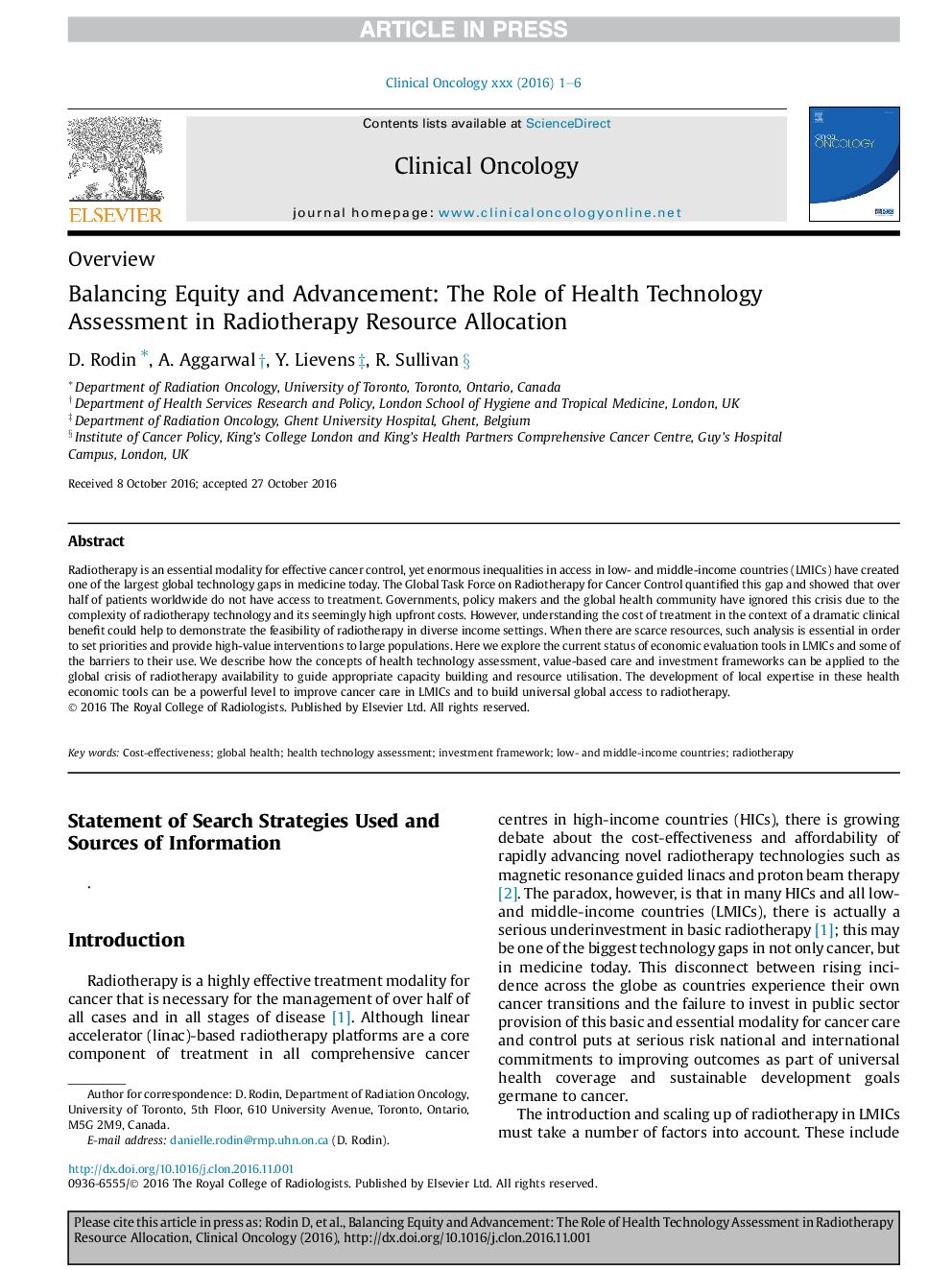| Article ID | Journal | Published Year | Pages | File Type |
|---|---|---|---|---|
| 5698189 | Clinical Oncology | 2017 | 6 Pages |
Abstract
Radiotherapy is an essential modality for effective cancer control, yet enormous inequalities in access in low- and middle-income countries (LMICs) have created one of the largest global technology gaps in medicine today. The Global Task Force on Radiotherapy for Cancer Control quantified this gap and showed that over half of patients worldwide do not have access to treatment. Governments, policy makers and the global health community have ignored this crisis due to the complexity of radiotherapy technology and its seemingly high upfront costs. However, understanding the cost of treatment in the context of a dramatic clinical benefit could help to demonstrate the feasibility of radiotherapy in diverse income settings. When there are scarce resources, such analysis is essential in order to set priorities and provide high-value interventions to large populations. Here we explore the current status of economic evaluation tools in LMICs and some of the barriers to their use. We describe how the concepts of health technology assessment, value-based care and investment frameworks can be applied to the global crisis of radiotherapy availability to guide appropriate capacity building and resource utilisation. The development of local expertise in these health economic tools can be a powerful level to improve cancer care in LMICs and to build universal global access to radiotherapy.
Keywords
Related Topics
Health Sciences
Medicine and Dentistry
Oncology
Authors
D. Rodin, A. Aggarwal, Y. Lievens, R. Sullivan,
